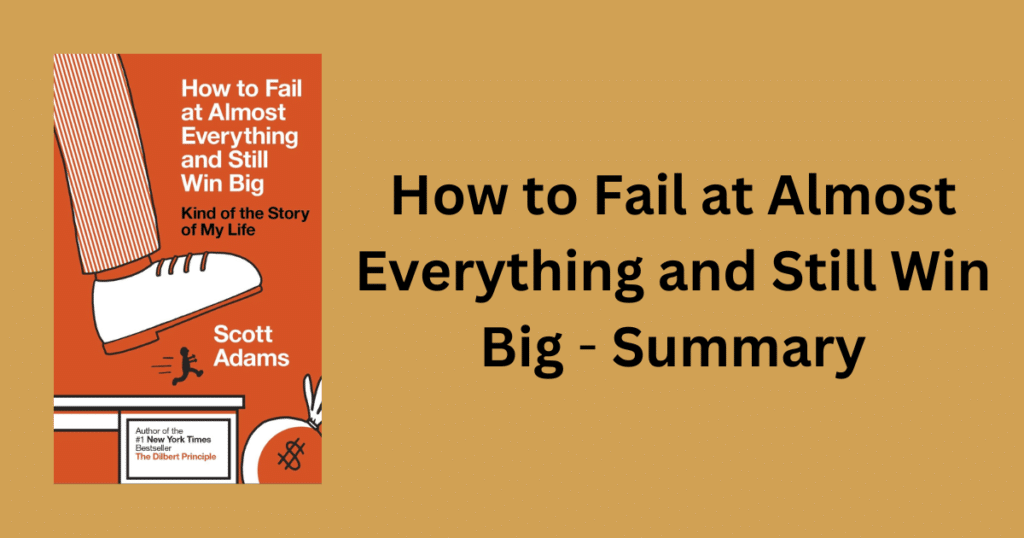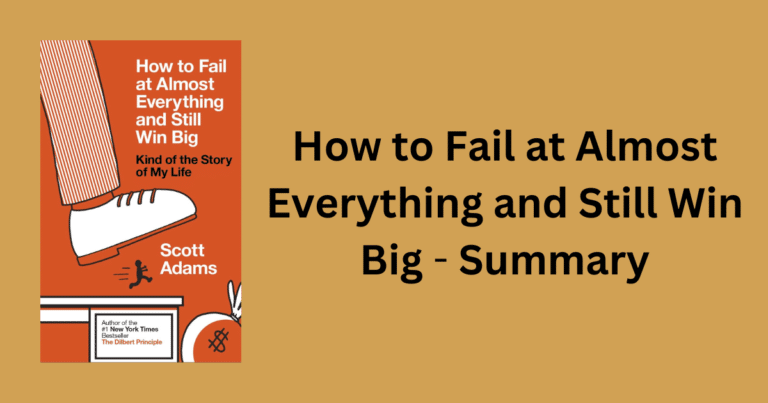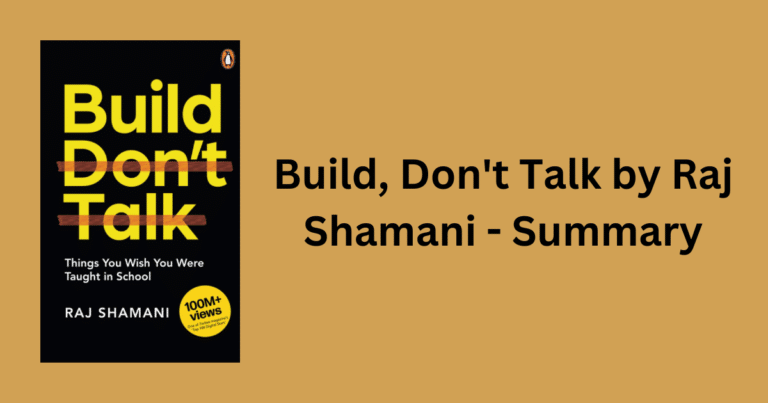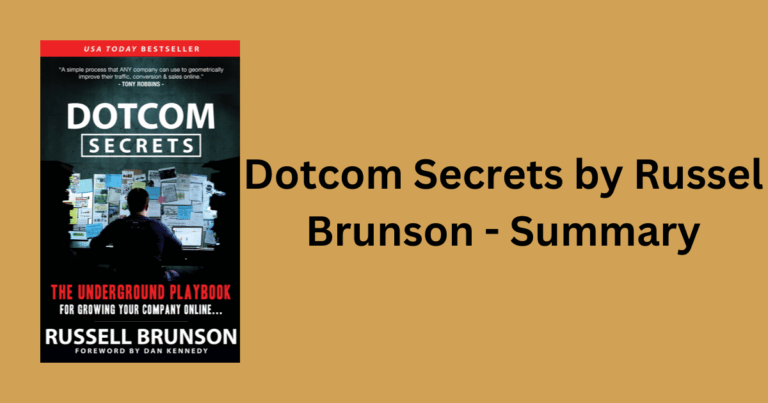Scott Adams, the creator of the Dilbert comic strip and author of various nonfiction works, rose to fame in the 1990s. Before becoming a full-time cartoonist, Adams held multiple positions in large corporations. His comic strip has been published in numerous newspapers and translated into multiple languages worldwide.
His unique insights into the world of business and satire have led him to author several nonfiction books. Dilbert gained popularity during the downsizing era in 1990s America and has since been published in 2,000 newspapers across 57 countries and translated into 19 languages.
If you haven’t had a chance to read How to Fail at Almost Everything and Still Win Big, this summary offers an overview of the essential concepts from the book. Despite recent controversies surrounding Adams, particularly his latest racist rant, it is important to separate these incidents from the content of his books.
How to fail at almost everything and still win big synopsis
How to Fail at Almost Everything and Still Win Big offers guidance on achieving success despite setbacks. Adams shares the fundamental principles that propelled his career from a typical office job to becoming the creator of a world-famous comic strip. This book outlines these principles, which can be more beneficial than following conventional societal advice.
The Shortcomings of Goal-Setting
Scott Adams argues that the traditional approach to setting goals is flawed. Goals are future-oriented and often overly specific, which can lead to frustration and disappointment when progress is not immediately visible or if the exact outcome is not achieved. Instead of focusing on specific end results, Adams suggests a different approach.
Embracing Systems for Success
According to Adams, systems are a superior alternative to goals. A system is a process that focuses on consistent improvement and can be applied in everyday life, yielding immediate satisfaction. Adams shares a story of a CEO who attributes his success to continually seeking better job opportunities, even when he didn’t need them, as an example of an effective system.
Implementing Systems in Daily Life
Adams emphasizes that systems help build habits and foster consistent growth. He used a system of creating content that resonated with people, rather than aiming for a specific end goal. This approach allowed him to persist through failures and eventually create the renowned Dilbert comic strip.
The Power of Being a Generalist
Adams highlights the value of acquiring a diverse skill set, as opposed to specializing in a single area. In today’s rapidly changing world, having a well-rounded knowledge base enables adaptability and success across various fields. Identifying and developing skills relevant to your passions and interests is key to thriving as a generalist.
Discover and Pursue Your Unique Talents
In addition to honing general skills, it’s essential to recognize and capitalize on your individual strengths. Adams suggests paying attention to activities you enjoy and areas where you’re comfortable taking risks, as these often align with your innate talents. By trying different jobs and experiences, you can find a career that suits your unique skills.
Aligning Tasks with Your Body’s Rhythms
Adams recommends listening to your body’s natural energy levels to determine the optimal time for different tasks. This approach ensures that you feel energized and can work efficiently.
Matching Tasks with the Appropriate Environment
Choosing the right location for different activities can also impact your productivity and focus. Pairing tasks that complement each other can help maximize your energy and efficiency.
Prioritizing Personal Energy
Adams asserts that maintaining your personal energy should always be a top priority, as it enables you to accomplish all other tasks. Proper nutrition, exercise, and sleep are crucial components of maintaining high energy levels.
Establishing Healthy Eating and Exercise Habits
Adams shares tips for making nutritious foods more appealing and maintaining a consistent exercise routine. He encourages adding flavorful ingredients to healthy meals and participating in group exercise activities for accountability and enjoyment.
Harnessing the Power of Association Programming
The moods and attitudes of those around you can impact your own energy and drive. Adams recommends surrounding yourself with people who inspire and energize you, as their positive influence can contribute to your success.
Challenging the Perception of Selfishness
Adams contends that focusing on your own well-being and success before helping others is not inherently selfish. By first achieving personal success and stability, you can more effectively contribute to the well-being of others.
Embracing Failure as a Learning Opportunity
Adams emphasizes that failure is an integral part of personal growth and development. By adopting a mindset that views failure as a chance to learn and improve, individuals can become more resilient and adaptable in the face of adversity.
Mastering the Art of Persuasion
Adams highlights the importance of persuasive communication skills in achieving success. He shares strategies for influencing others and making your ideas more appealing, such as framing arguments in a way that resonates with your audience.
It is important for readers to form their own opinions about Scott Adams’ work, taking into consideration the broader context and intent of his creative output. While some may find his work offensive or inappropriate, others appreciate the satirical nature of his comics and the valuable insights he provides in his nonfiction books.
In conclusion, How to Fail at Almost Everything and Still Win Big offers a fresh perspective on personal growth and professional success.
Scott Adams’ emphasis on systems, generalist skill development, and embracing failure as a learning opportunity provides readers with actionable strategies for improving their lives.
However, it’s essential to consider the controversy surrounding Adams’ work and determine whether his views align with your own values and beliefs.






